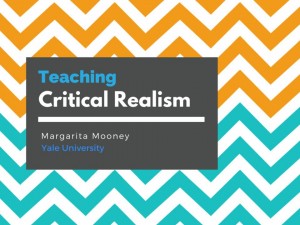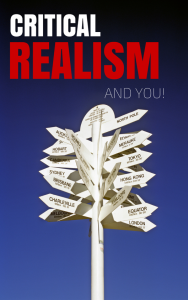This post is part of a series on personhood.
When I first found out that Americans celebrated Labor in September while most of the rest of the world celebrated International Workers’ Day on May 1, I wondered: this just another case of the U.S. try to be different, even exceptional?
The simple answer is that the U.S. chooses not to celebrate Labor Day on May 1 because that is considered a socialist holiday, associated with strikes, rebellion, and in some minds, even Marxist revolution. That is not to say that people who celebrate labor in May are Marxist socialists and Americans who celebrate labor in September are not. Having spent many Mays and Septembers in different countries, the character of how labor is celebrated (at least now) seems remarkably similar–it’s another day off, a secular holiday, a time for vacation with family and friends. Here on BW&G, Amy Reynolds has written about the need to celebrate work and protect workers’ rights here in the US.
 I now understand that celebrating labor on different days is part of a long-standing debate about the meaning of human work and the rights of workers. As part of my renewed interest in the philosophy of personalism, which I have written about here at BW&G, I recently picked up a copy of a book written by Samuel Gregg, Director of Research for the Acton Institute, entitled Challenging the Modern World: Karol Wojytla/John Paul II and the Development of Catholic Social Teaching. When I picked up Gregg’s book, I was relieved to find that he condenses and synthesizes philosophy, anthropology and history into a very readable analysis of how Karol Wojytla and personalism have influenced the development of Catholic social doctrine.
I now understand that celebrating labor on different days is part of a long-standing debate about the meaning of human work and the rights of workers. As part of my renewed interest in the philosophy of personalism, which I have written about here at BW&G, I recently picked up a copy of a book written by Samuel Gregg, Director of Research for the Acton Institute, entitled Challenging the Modern World: Karol Wojytla/John Paul II and the Development of Catholic Social Teaching. When I picked up Gregg’s book, I was relieved to find that he condenses and synthesizes philosophy, anthropology and history into a very readable analysis of how Karol Wojytla and personalism have influenced the development of Catholic social doctrine.
Perhaps because I read the introduction to Gregg’s book on Labor Day 2012, Gregg’s argument that Wojytla’s personalist philosophy led him to draft the 1981 encyclical Laborem Exercens (On Human Work) really caught my attention. Another Patheos writer, Kathy Schiffer, also dedicated her Labor Day post to reflecting on how the first social encyclical, Pope Leo XII’s Rerum Novarum (published in 1891), still holds important lessons for the U.S. today.
When people think of Catholic social teaching the first thing that comes to their mind may be the call to charity or solidarity with the poor, as exemplified by Mother Teresa of Calcutta. However, Gregg contends that for Wojytla/John Paul II, a proper understanding of human work is central to all Catholic social teaching.

So what does John Paul II’s Laborem Exercens say about human work? I walked over to my bookshelf and picked up a pile of encyclicals that my mother gave me more than a decade ago which had belonged to her father. My grandfather, Manuel Suarez Carreno, was an avid reader of Catholic social teaching and tried to put them into practice in his homeland of Cuba by promoting agrarian reform to help small farmers, among other things.
As I flipped through the pile of encyclicals with my grandfather’s signature on them and lines filled with his underlining, I got teary-eyed. For my grandfather, debates about the meaning of human work were not just abstract philosophical discussions. Debates about work and the organization of the economy tore about Cuba in the early 1960s, leading my grandfather and millions of other Cubans into exile. For the leaders of the Cuban Revolution, the socialist organization of the economy was the only way forward. Private property was abolished, and all work was organized under the central Communist party.
Wojytla/John Paul II certainly understood the socialist organization of labor, as he lived in Communist Poland. One critique of work under socialism, perhaps most eloquently laid out by Friedrich Hayek in The Road to Serfdom, is that workers under socialism have little choice in what work they do. In Laborem Exercens, hence, John Paul II insists that a worker “is a person, a conscious and free subject, that is to say, a subject that decides about himself.”
Why is that assertion significant? For many, what is real about work is its objective dimension. Recall that for Karl Marx, the ultimate reality of the world is material. Through work, according to Marx, man produces himself because he produces something, an object. But for Wojytla/John Paul II, work doesn’t only produce something, or an object. Rather, in a very real way, work produces somebody, work produces the person himself or herself.
How so? “As a person works, he performs various actions belonging to the work process; independently of their objective content, these actions must all serve to realize his humanity, to fulfill a calling to be a person that is his by reason of his very humanity.” (John Paul II, Laborem Exercens) For Wojytla/John Paul II, the value of work is not in the market value of what is produced, rather, “the value of human work is not primarily the kind of work being done but the fact that the one who is doing it is a person. The sources of the dignity of work are to be sought primarily in the subjective dimension, not the objective one.”
However, Wojytla/John Paul II is not a pure idealist who thinks that the only reality is consciousness or spiritual. In other words, Wojytla/John Paul II is not saying that work has no objective value; he is saying that work has both an objective and a subjective value.
To further explain, Gregg writes, “John Paul’s development of Catholic social teaching is characterized by a deepening of its moral-anthropological dimension. The result is an increased focus upon man as a free and creative subject capable of self-realization as that which he ought to be” (Gregg, Challenging the Modern World, p. 7).
Does all of this sound too abstract to apply to your life? One way reading Catholic social teaching has influenced me is by reminding me that I should think of the subject, the human person, I am interacting with at all times. In the US economy, much work is done in the service sector. Are those client-service interactions impersonal and dehumanizing? Sometimes, but they don’t have to be. If you recall that the the person working for you is a person, perhaps you can find a way to engage them in conversation. Yesterday, after a long conversation with a very helpful salesperson at Best Buy, I asked him “Are you Cuban from Miami?” I don’t know how intuition works, but in this case, I was right on. He replied, “Yes, I am! How did you know? You just made my day!” I told him that something about him reminded me of all my Cuban relatives and friends in Miami.
In this instance, as in many others, we can do our work, or be the recipients of someone else’s work, in a way that is human–by both engaging in the objective problem and by engaging the subjectivity of the person in front of us. Of course Labor Day or May Day exists to remind us that we also need to think about macro-economic policies affecting work, but let’s not forget the subjective value of work and the subjective value of every worker. Try engaging the acting person at work; you might make someone’s day.














